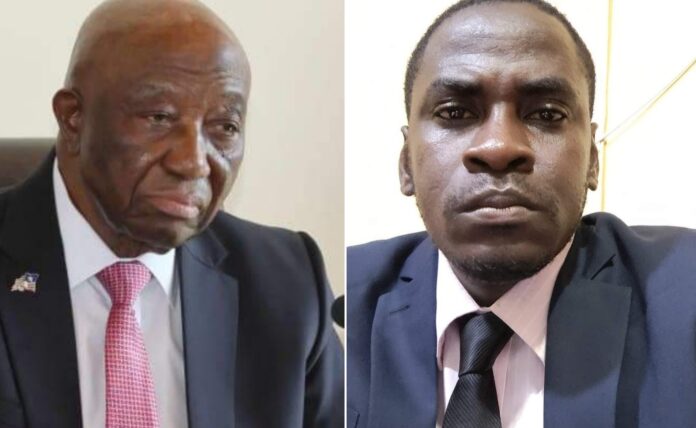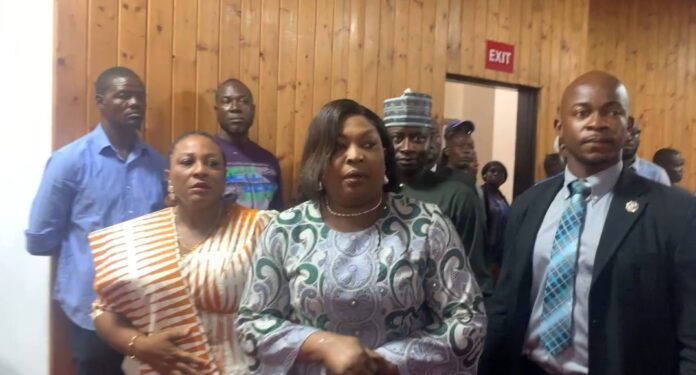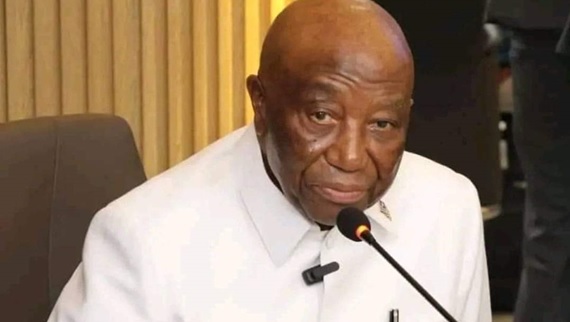MONROVIA – The suspension and subsequent resignation of Matthew Nyanplu, Assistant Minister for Information Services, has thrown a harsh spotlight on the leadership style of President Joseph Boakai’s administration. By prioritizing loyalty and political convenience over accountability and transparency, the executive branch risks unraveling the very governance standards it promised to uphold during the election campaign.
Nyanplu’s outspoken critique of the controversial $25 million Nekotech deal and the executive branch’s handling of dissent reveals a troubling pattern of intolerance within the administration. Instead of addressing legitimate concerns about a potentially flawed agreement, the government chose to silence one of its own, exposing a culture that discourages scrutiny and rewards blind loyalty.
Nyanplu’s Facebook post exposes a disturbing reality: the Boakai administration appears unwilling to hold its own accountable. By dismissing criticism of the Foreign Minister’s handling of the Nekotech agreement as inappropriate, the executive branch demonstrates a selective approach to transparency. This hypocrisy is starkly evident in Nyanplu’s statement: “If this was a CDC government minister that brought this colossal disgrace to our country, our UP folks would be in arms. Because it is a UP government minister, they say I mor na talkay.”
This attitude not only undermines the administration’s credibility but also reinforces public perceptions that the Unity Party-led government is no different from its predecessor. The promise of the “RESCUE mission” now appears to be little more than rhetoric, as the executive branch fails to distinguish itself from the very governance failures it campaigned against.
The executive’s decision to suspend Nyanplu for bypassing “interagency protocols” is a thinly veiled attempt to stifle dissent. His criticism of the government’s priorities, particularly its reluctance to address inefficiencies and corruption, should have sparked introspection within the administration. Instead, it prompted retribution, with Nyanplu’s salary withheld and his position rendered untenable.
This move sets a dangerous precedent. By penalizing whistleblowers, the executive branch sends a clear message: dissent will not be tolerated, even when it serves the public interest. This approach erodes trust in government and discourages qualified professionals from speaking out against inefficiencies, ultimately undermining Liberia’s development prospects.
Nyanplu’s criticism extends beyond the Nekotech deal to the ongoing legislative crisis, where 43 lawmakers have refused to recognize Speaker Fonati Koffa’s authority. Instead of upholding the rule of law, members of the executive branch are accused of engaging with these lawmakers, further deepening the crisis.
By failing to take a decisive stance in support of constitutional order, the executive branch has demonstrated a worrying lack of leadership. As Nyanplu pointed out, “Anybody in the executive doing business with those 43 lawmakers, just know that you are as corrupt as the CDC government we so ferociously campaigned against.”
This failure to enforce accountability within its ranks raises questions about the Boakai administration’s commitment to governance reform.
Nyanplu’s description of the government’s internal dynamics paints a grim picture of a culture steeped in intimidation and insecurity. He described ministers and appointees as unwilling to tolerate dissent, equating criticism with disloyalty. “Ministers dread criticism, they dread dissent. Must we be afraid of that?” he asked.
Such an environment stifles innovation, discourages debate, and alienates reform-minded individuals. It also enables inefficiency and corruption, as public officials become more concerned with appeasing superiors than serving the public.
President Boakai’s handling of this controversy has been disappointing. By suspending Nyanplu instead of addressing his concerns, the President has signaled an unwillingness to engage with dissenting voices. His silence on the Nekotech deal and the broader governance issues raised by Nyanplu further undermines confidence in his leadership.
Leadership requires not only vision but also the ability to tolerate and learn from criticism. Boakai’s failure to defend the principles of transparency and accountability risks alienating even his staunchest supporters, as evidenced by Nyanplu’s parting words: “We campaigned against Weah for good governance in our country, not to keep a job.”
The Boakai administration’s response to Matthew Nyanplu’s whistleblowing has exposed significant flaws in its governance approach. By prioritizing loyalty over accountability and punishing dissent, the executive branch risks losing the moral high ground it claimed during the campaign.
Liberia’s citizens deserve a government that values transparency, upholds the rule of law, and encourages open dialogue. President Boakai and his administration must recognize that dissent is not a threat but an opportunity to improve governance. Failure to embrace this principle will not only jeopardize the “RESCUE mission” but also erode the public’s trust in their leadership.
If the Boakai administration cannot rise to the challenge of governing with integrity, it risks becoming indistinguishable from the regime it replaced.







